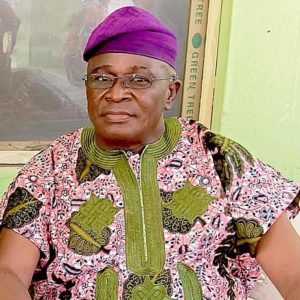
President Bola Ahmed Tinubu has long before becoming the President and Commander in Chief of the Armed Forces of the Federal Republic of Nigeria set his sights on a deep and an extraordinary transformation agenda, with a focus on improving various aspects of the country’s governance, economy and the country.
 His vision involves implementing numerous policies and initiatives that aim to tackle to the root key agelong issues that had held Nigeria down, backward and keeps Nigerians in bondage and lay solid foundation to propel her towards becoming a more prosperous and developed nation.
His vision involves implementing numerous policies and initiatives that aim to tackle to the root key agelong issues that had held Nigeria down, backward and keeps Nigerians in bondage and lay solid foundation to propel her towards becoming a more prosperous and developed nation.
The removal of oil subsidies has been one of the most contentious issues for years. It aims to reduce government spending and redirect funds into more sustainable areas, such as healthcare and education. While this has led to an increase in fuel prices, the long-term effect will stabilize the economy, attract foreign investment, and reduce corruption associated with subsidy regimes.
The very resilient and deeply understanding Nigerians have had to adjust to the increased costs, showing remarkable endurance and adaptability knowing fully well that it will be justified and greatly appreciated long after the eight years of President Bola Ahmed Tinubu.
Currency equalization policies of the government involve addressing the naira’s volatility and ensuring a more stable exchange rate that reflects market realities. This policy seeks to boost investor confidence and support local businesses by creating a more predictable economic environment. The struggle against inflation due to currency devaluation has been a significant concern, impacting the purchasing power of many Nigerians, yet the government aims to harness these changes to foster a sustainable economic growth.
While the challenges posed by these reforms are substantial, the resilience shown by Nigerians reflects a commitment to national progress. The sacrifices made by the populace, coupled with strategic government initiatives, will no doubt potentially lead to a more robust and sustainable economy in the long run.
He plans to implement policies that will stimulate economic growth, create job opportunities, and reduce poverty levels. He recognizes the importance of diversifying Nigeria’s economy beyond oil and gas, and has proposed initiatives to encourage investment in sectors such as agriculture, manufacturing, and technology.
We appeal earnestly that the President urgently halts the dowling of the huge windfalls from oil subsidy removal to state governments going forward. Such money should be massively disbursed as loans towards revamping several moribund manufacturing industries such as the Kaduna textiles and the rest across the country. This will greatly address the very crucial unemployment in Nigeria, especially with a youth population that is increasingly demanding opportunities.
The President evidently committed to improving infrastructure development in Nigeria. He aims to revitalize the country’s crumbling infrastructure, including roads, bridges, and power supply. The President hopes to enhance connectivity, promote economic development, and improve the overall quality of life for Nigerian citizens.
While President Tinubu’s transformational agenda for Nigeria is still in its early stages, his stern focus and sincere determination to see it through to fruition is worthy of Nigerians encouragement and prayers.
Hon Musa Bakare, a member of Tinubu Support Group Group writes from Lokoja, Kogi state capital
2nd November, 2024
